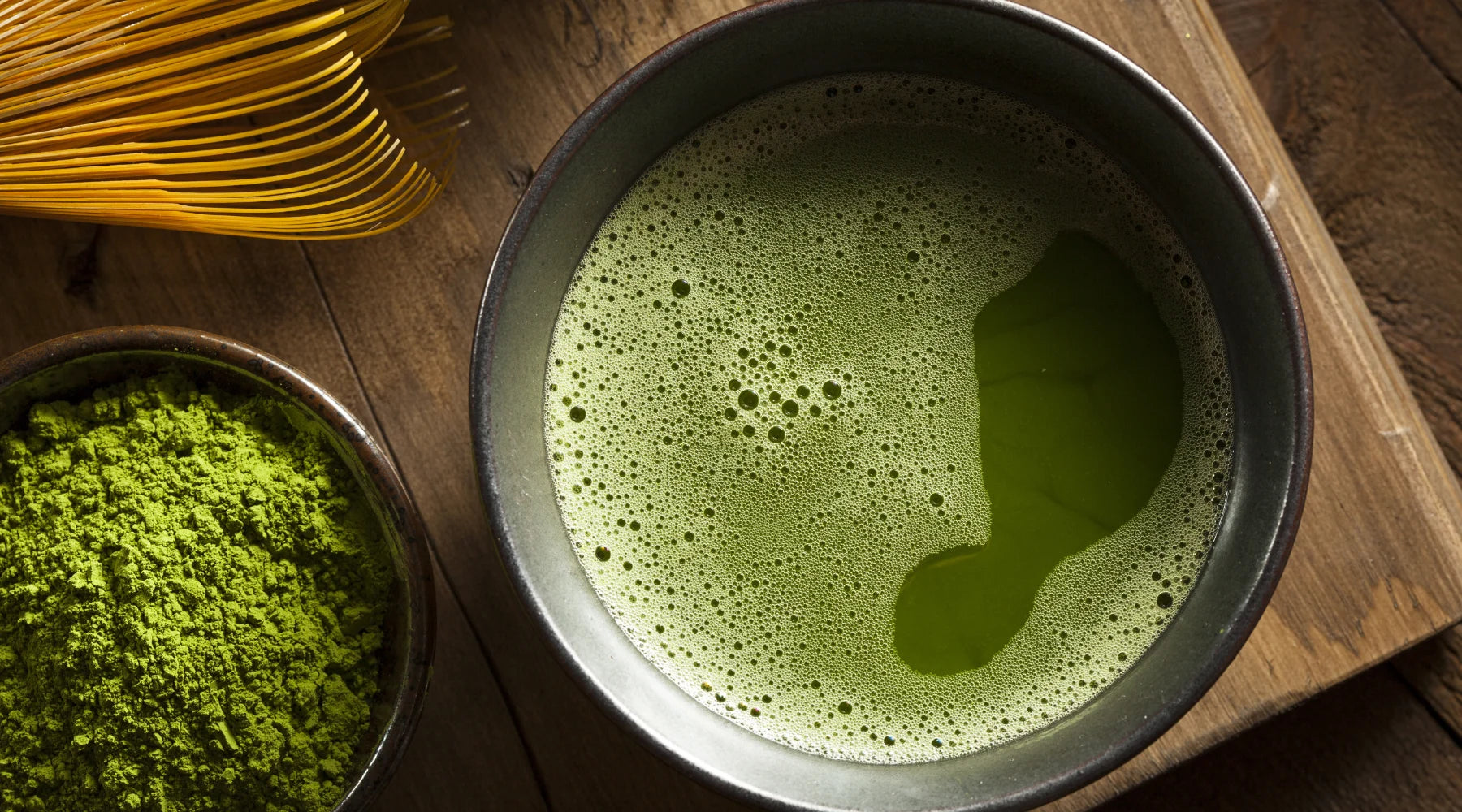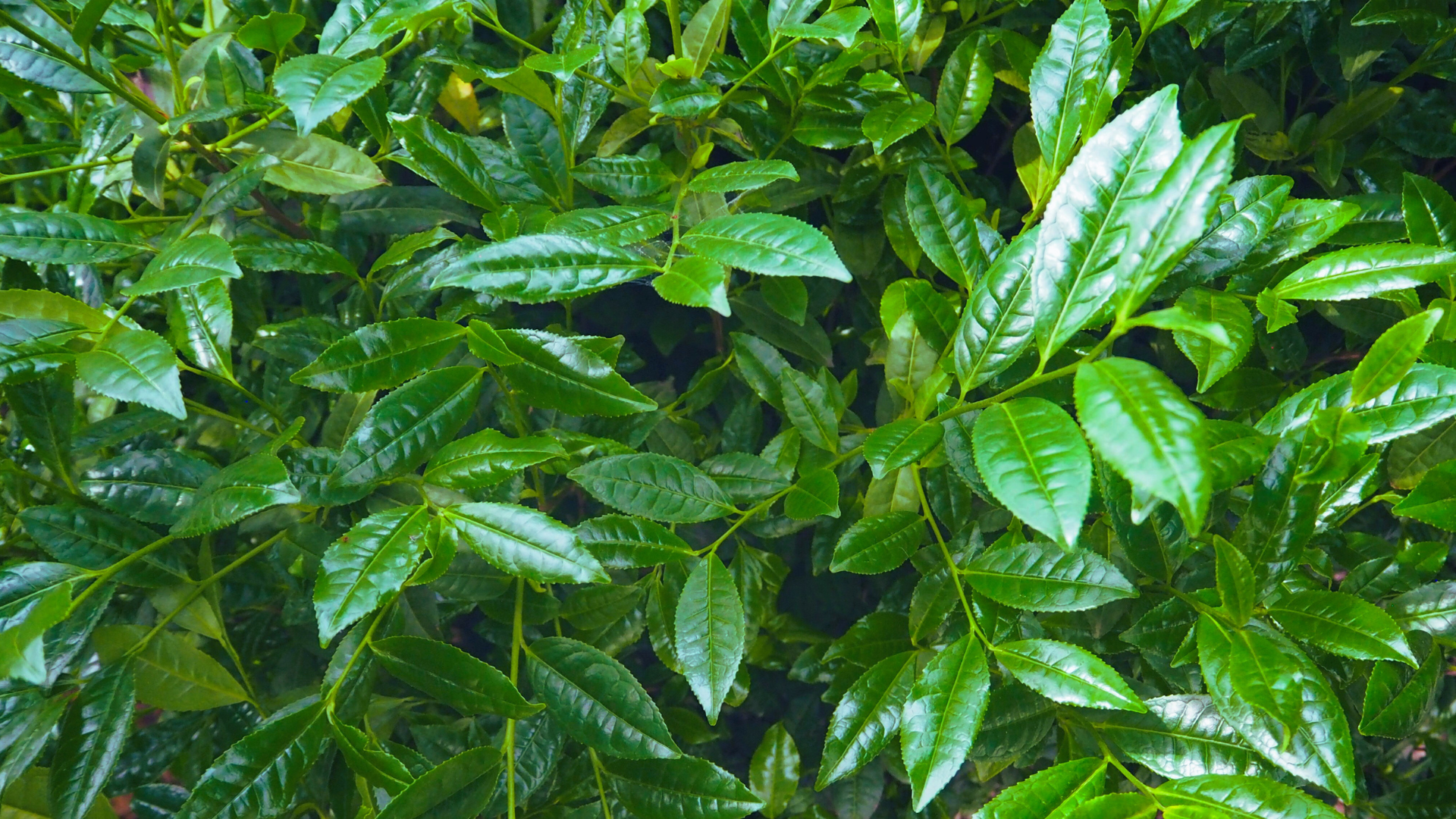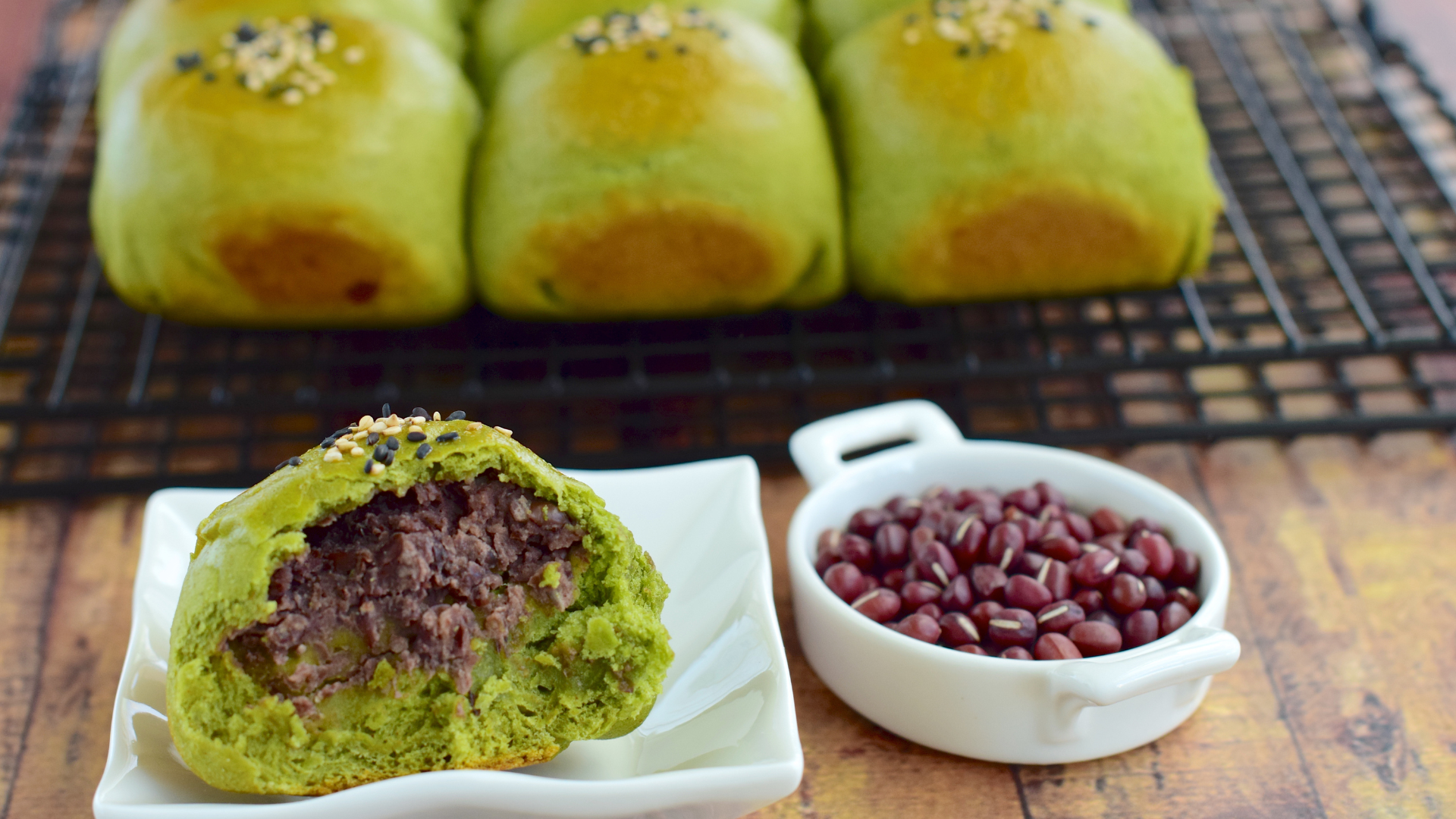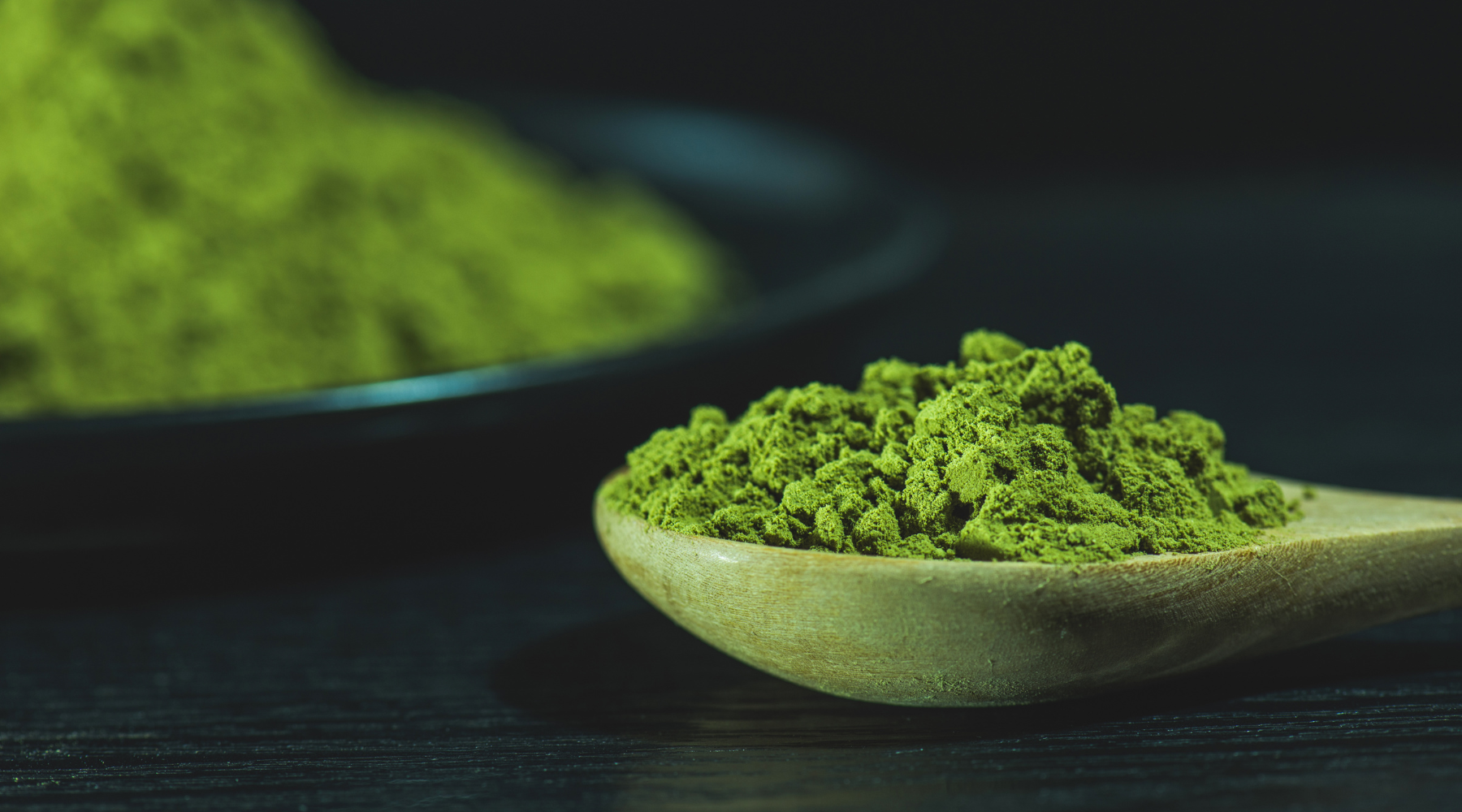
Was ist Matcha?
Wenn Sie sich für Teekultur interessieren oder sich über die neuesten Trends in der Gesundheitsbranche informieren, sind Sie möglicherweise schon oft auf den Begriff „Matcha“ gestoßen. Aber was ist Matcha?
Dieses kraftvolle, nährstoffreiche Kraftpaket genießt weltweit hohes Ansehen in kulinarischen und Wellness-Kreisen. In diesem Ratgeber erfahren Sie alles über Matcha – von seiner Herkunft und Herstellung bis hin zu seinen zahlreichen gesundheitlichen Vorteilen und seinem einzigartigen Geschmacksprofil.
Eine kurze Geschichte von Matcha
Matcha ist eine Grünteesorte, die ursprünglich aus China stammt und später nach Japan gelangte, wo sie in der lokalen Kultur Fuß fasste und zu einem Eckpfeiler der traditionellen Teezeremonie wurde.
Matcha ist heute weltweit bekannt, und viele Teeliebhaber besuchen regelmäßig Matcha-Häuser, um ihre tägliche Dosis dieses köstlichen Gebräus zu genießen. Insbesondere japanischer Matcha-Tee gilt oft als der beste, und die Stadt Uji in der Region Kyoto ist für ihren hochwertigen Matcha, bekannt als Uji Matcha, berühmt.
Woraus besteht Matcha?
Matcha ist also eine Form von grünem Tee. Doch woraus besteht Matcha? Matcha wird aus den zarten, jungen Blättern der Camellia sinensis hergestellt, derselben Pflanze, aus der die meisten anderen Teesorten hergestellt werden. Was Matcha jedoch auszeichnet, ist sein einzigartiger Anbau- und Herstellungsprozess.
Etwa drei bis vier Wochen vor der Ernte decken die Teebauern ihre Pflanzen ab, um das Sonnenlicht zu blockieren. Dadurch erhöht sich der Chlorophyllgehalt der Blätter, was ihre grüne Farbe und ihren Nährstoffgehalt verbessert. Nach der Ernte werden die Blätter gedämpft, getrocknet und entstielt, sodass nur die feinsten Teile, die sogenannte „Tencha“, übrig bleiben. Diese werden dann zu einem feinen, jadefarbenen Pulver – Matcha – gemahlen. Mehr über diesen Prozess erfahren Sie auf unserer Seite „Wie wird Matcha-Pulver hergestellt?“ .
Die lebendige Welt des Matcha-Tees
Nachdem wir nun wissen, dass Matcha-Tee ein Produkt der Pflanze Camellia sinensis ist, wollen wir uns die verschiedenen Formen von Matcha-Tee genauer ansehen.
„Usucha“, dünner Tee, und „Koicha“, dicker Tee, sind zwei traditionelle Zubereitungsarten von Matcha. Usucha ist leichter und leicht schaumig und wird typischerweise für den Alltag verwendet, während Koicha dicker und weniger bitter ist und oft für besondere Anlässe reserviert wird.
Ob Sie Matcha heiß oder kalt genießen, es gibt viele Möglichkeiten, dieses vielseitige Getränk zu genießen. Ein heißer Matcha ist traditionell und bietet ein wärmendes, beruhigendes Erlebnis. Matcha-Eistee hingegen bietet eine erfrischende Alternative, perfekt für wärmere Tage. Für ein cremigeres Erlebnis sind Matcha-Lattes eine beliebte Wahl und können heiß oder kalt genossen werden.
Das beste Matcha-Pulver wird in der Regel als zeremonieller Matcha klassifiziert. Diese Qualität ist die höchste und wird typischerweise in traditionellen japanischen Teezeremonien verwendet. Es wird aus den zartesten, jüngsten Teeblättern hergestellt, was zu einem weichen, leicht süßen Geschmacksprofil führt. Wenn Sie mehr darüber erfahren möchten, lesen Sie unsere Seite „Zeremonieller vs. kulinarischer Matcha“ .
Wie schmeckt Matcha?
Wer Matcha zum ersten Mal trinkt, fragt sich oft: „Wie schmeckt Matcha?“ Matcha hat ein einzigartiges Geschmacksprofil – eine Kombination aus reichhaltigen, pflanzlichen Noten, einem Hauch Umami und einer leichten Süße. Der Geschmack kann je nach Teequalität variieren.
Hochwertiger Matcha ist tendenziell weniger bitter und hat ein weiches, fast cremiges Mundgefühl. Matcha von geringerer Qualität kann herb und bitterer schmecken. Unabhängig von der Qualität ist Matcha mit seinem ausgeprägten, lebendigen Geschmack eine spannende Ergänzung sowohl für süße als auch für herzhafte Gerichte.
Die Vorteile von Matcha entdecken
Einer der Gründe, warum Matcha weltweit so beliebt geworden ist, sind seine unglaublichen gesundheitlichen Vorteile.
Matcha versorgt den Körper mit einer Fülle an Nährstoffen. Er ist reich an Antioxidantien, insbesondere Catechinen, die freie Radikale im Körper bekämpfen. Zudem ist Matcha eine natürliche Quelle für Koffein und L-Theanin, eine Aminosäure, die Entspannung fördert, ohne Müdigkeit zu verursachen. Diese einzigartige Kombination kann die Konzentration steigern und gleichzeitig ein Gefühl der Ruhe erzeugen.
Darüber hinaus kann Matcha den Stoffwechsel ankurbeln und die Kalorienverbrennung fördern, was beim Abnehmen hilft. Studien deuten außerdem darauf hin, dass es den Blutzuckerspiegel regulieren und das schlechte Cholesterin senken kann.
Wie alles Gute sollte auch Matcha in Maßen genossen werden. Wenn Sie an Vorerkrankungen leiden, konsultieren Sie bitte unbedingt einen Arzt oder Ernährungsberater, bevor Sie Matcha in Ihre tägliche Routine integrieren.
Möglichkeiten, Matcha zu genießen
Matchas Vielseitigkeit beschränkt sich nicht nur auf Tee. Heute findet man Matcha in einer Reihe kulinarischer Köstlichkeiten, von Gebäck und Desserts bis hin zu Pasta und Smoothies.
Zu den beliebten japanischen Leckereien gehören „Matcha Samurai“, eine Biskuitrolle mit Matcha-Creme, und „Matcha Red Bean“-Desserts, eine süße Köstlichkeit aus Matcha und Adzuki-Bohnen.
Mit Matcha in der eigenen Küche zu experimentieren, kann eine spannende kulinarische Reise sein. Ob Sie nun einen traditionellen Matcha-Tee zubereiten oder einen modernen Eiskaffee mit Matcha kreieren – die richtigen Utensilien machen den entscheidenden Unterschied.
Das traditionelle Werkzeug zum Aufschlagen von Matcha ist ein Bambusbesen oder „Chasen“, und die Schale, die zum Zubereiten und Servieren von Matcha verwendet wird, heißt „Chawan“.
Zum Abschluss
Um also die ursprüngliche Frage zu beantworten: „Matcha, was ist das?“ Matcha ist eine Grünteesorte, die zu feinem Pulver gemahlen wird. Er ist bekannt für seine leuchtend grüne Farbe, sein einzigartiges Geschmacksprofil und seine zahlreichen gesundheitlichen Vorteile. Ob als traditioneller heißer Tee, kalter Matcha-Tee oder cremiger Latte – Matcha nimmt in der Welt des Tees zweifellos einen besonderen Platz ein.
Bereit für Ihre eigene Matcha-Reise? Besuchen Sie unseren Shop -Tab, um unsere Matcha-Pulver-Kollektion zu entdecken, oder erfahren Sie mehr über diesen fantastischen Tee auf unserem Tab „Mehr über Matcha“ .
Egal, ob Sie schon lange Matcha-Enthusiast sind oder gerade erst anfangen, in der Welt des Matcha gibt es immer etwas Neues zu lernen und zu erleben.





